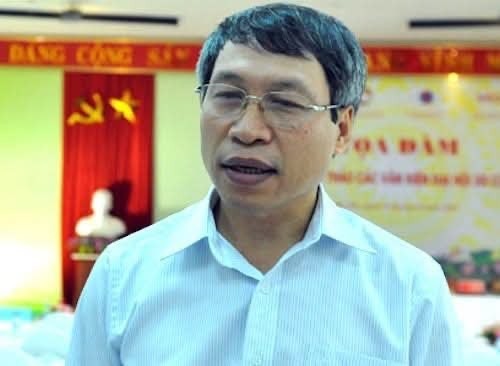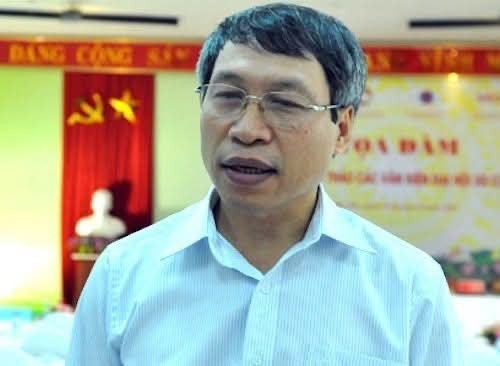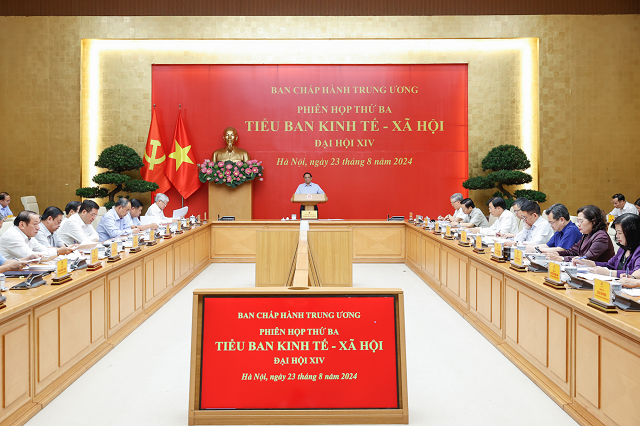“Old Mindsets Cannot Be Applied to National-Scale Projects”
What are your thoughts on a private enterprise like VinSpeed proposing to invest in the North-South high-speed rail project?
I find this proposal encouraging. It aligns with the Party’s Resolution 68-NQ/TW of 2025, which promotes the development of the private sector. The resolution emphasizes the need to eradicate prejudices against private enterprises and encourages their involvement in significant national tasks while fostering their regional aspirations.
We have a clear basis to support private enterprises like VinSpeed in the North-South high-speed rail project. Their vision and dedication are commendable and deserve our support.
The upcoming period demands high growth and breakthrough thinking, innovative mechanisms, and decisive action. We cannot afford to hesitate as we have in the past. South Korea successfully developed its economy by empowering its private sector and implementing a “Trade Privileges for Development Commitments” mechanism. The government provided capital, land, and preferential credit, while private enterprises followed the state’s strategic orientation. These lessons remain valuable for us.
In their proposal to the Prime Minister, VinSpeed requested special mechanisms for the project, such as borrowing 80% of the project’s capital for 35 years and a 99-year operation period. Some argue that this amounts to special privileges for a private enterprise. What are your thoughts on this?
Setting aside the specific numbers for now, we must recognize the overarching mindset for the next phase: extraordinary projects with national significance demand commensurate special mechanisms. We cannot apply ordinary standards to extraordinary, breakthrough projects.
South Korea’s experience demonstrates the value of providing exceptional conditions for strategic projects, ranging from credit access to prioritized land allocation, human resources, and tax incentives. Their government strategically selected private enterprises as partners in industrialization. In return, these enterprises committed to national economic goals, including exports, technology localization, job creation, and infrastructure development.

Dr. Bui Quang Tuan, Vice President of the Vietnam Economic Science Association and former Director of the Vietnam Economics Institute
Vietnam can learn from this by ensuring state accompaniment and selecting the right private enterprises. Choosing wisely not only ensures project success but also creates positive spillover effects. A corporation with a robust ecosystem, like Vingroup, will attract other Vietnamese businesses in design, construction, technology, human resources, and logistics. This will foster the growth of not just one but multiple robust Vietnamese enterprises.
We must assert that inaction will hinder our growth. Taking on large-scale projects is challenging, but with determination, creativity, state accompaniment, and accompanying conditions, success is attainable.
There are concerns about the enterprise’s ability to execute such a project, as it requires advanced technology and is a novel field for them. How do you respond to this?
Precisely because it is challenging, we need the private sector’s boldness and dynamism. Some Vietnamese private enterprises demonstrate excellent innovative thinking and dare to venture into high-tech fields and digital transformation. With appropriate encouragement and state accompaniment through suitable incentive mechanisms, they are well-equipped to undertake monumental projects.
A mindset shift is necessary. The state cannot do everything. A facilitative state should focus on creating a transparent and conducive legal framework and operational mechanism. Private enterprises excel at speed and efficiency, unencumbered by cumbersome legal procedures and restrictive mechanisms often faced by state-owned enterprises.
If we remain apprehensive about the private sector, we will never accomplish grand projects, and the private sector will never reach its full potential. With trust in private enterprises and state accompaniment, along with the support of scientific and technological organizations, technological barriers become surmountable.
Infrastructure Backbone for High-Speed Growth Impulse
What benefits will Vietnam gain from a North-South high-speed rail line?
The North-South high-speed rail project is one of the most important strategic infrastructure projects for Vietnam in the 21st century. It holds immense significance. Economically, it will serve as the backbone, connecting the two growth poles of Hanoi and Ho Chi Minh City, along with numerous major cities along the North-South axis. It will boost the flow of goods, labor, and tourism, significantly reducing logistics costs and forming an economic development corridor. Strategically, it contributes to the high-growth goals for 2030 and the longer-term vision for 2045. Socially, it provides modern, safe, and affordable transportation services, improves social connectivity, and enhances opportunities for poverty alleviation and wealth creation.
Some are concerned that the enterprise, by building the railway, will have access to “golden land” in many localities. What are your thoughts on this?
We must view this through the lens of transparent governance and public-private partnership. Many countries have successfully involved private enterprises in infrastructure investment and development, combined with land fund development along the route, notably Japan and South Korea.
In Japan, private railway companies like JR East and Tokyu Corporation efficiently operate transportation systems and develop commercial real estate along the routes, creating thriving “corridor cities.” In South Korea, public-private partnerships in metro and highway projects allow investors to develop land around stations according to strict planning, enhancing the efficiency of public investment.
Therefore, the issue is not private sector involvement but the state’s transparent planning, monitoring mechanisms, and implementation capacity. Proper control ensures reduced budget burdens, accelerated progress, regional development activation, and improved efficiency in the use of public land. However, if we approach this with extreme and one-sided concerns or fears about private sector initiatives, we will only slow down Vietnam’s infrastructure and national modernization race.
Moreover, we must consider the bigger picture. If we focus solely on potential minor losses, we will never accomplish anything significant. The state should create a transparent and legally conducive environment and encourage initiative, shifting its mindset from pre-inspection to post-inspection. With proper post-inspection, anyone who makes a mistake will be held accountable, and the concerns mentioned earlier will be alleviated.
The state should trust private enterprises, and vice versa. The state needs to be a facilitative, accompanying, and supportive partner, addressing obstacles as outlined in Resolution 68. This time, we must decisively implement this resolution effectively. Otherwise, we risk wasting another opportunity to break through and develop.
VinSpeed has committed to completing the railway within five years, which many consider unrealistic. What is your opinion on this?
The new era is defined by speed. In today’s digitized and fiercely competitive global landscape, falling behind means losing an entire generation. Vietnam cannot afford to hesitate. We must act faster, more decisively, and more boldly to catch up. If we don’t accelerate, we will forever lag. It’s time for Vietnam to sprint to catch up with the frontrunners.
I believe that with VinSpeed’s spirit of aspiration and breakthrough, they can deliver the project swiftly. This belief stems from two factors. First, regarding speed in today’s market, anyone with an objective assessment will acknowledge that Vingroup’s enterprises lead in rapid and quality construction. With their resources, determination, and systematic approach, I trust that VinSpeed and their partner enterprises will demonstrate this spirit. Second, technology has made remarkable strides and can be imported, transferred, and customized, so technology is not an insurmountable obstacle.
Moreover, completing the project within five years will not only save national resources but also seize the opportunity for early and rapid development. The early operation of such large-scale projects will provide a strong and timely boost, meeting the urgent needs of our development.
From the enterprises’ perspective, we must view this as a patriotic contribution and a pioneering act by private enterprises for the nation. We should honor this pioneering spirit and encourage their willingness to take responsibility and embrace innovation.
Thank you for your insights!
“Sotrans CEO on the 54% Profit Growth Plan: What’s the Strategy?”
Despite aiming for over a 50% growth in after-tax profits in 2025, the leadership of Southern Logistics Joint Stock Company (Sotrans, HOSE: STG) believes that this is not an unrealistic expectation. This confidence is based on positive business signals since the beginning of the year and significant improvements in previously challenging operational areas.
What Goals Should the Private Sector Aim For to Lead the Economy?
The private sector is recognized as a vital economic driver. Resolution 68 sets out ambitious targets for this sector by 2030 and 2045. Are you clued-up on the details? Test your knowledge with these three questions.
SHB – Where Over 100,000 Shareholders Place Their Trust, Joining Forces for Mutual Growth and Breakthrough in the New Era.
SHB is currently one of the listed companies with the largest number of shareholders in the market. This fact underscores the trust that shareholders have placed in SHB, despite market fluctuations. Beyond just an investment, the relationship between SHB and its shareholders has evolved into a bond forged through transparency, accountability, and a long-term vision. Each annual general meeting of shareholders (AGM) is akin to a festival, bringing together thousands of enthusiastic shareholders and proxies.
The Business Highlights of SCIC’s 2025 Annual General Meeting
The government’s ambitious 8% GDP growth target sets a challenging yet achievable goal for businesses in a year of anticipated economic hurdles. The determination to strive towards this target was evident in the recent round of shareholder meetings, with enterprises partially or wholly owned by the State Capital Investment Corporation (SCIC) leading the charge.





















